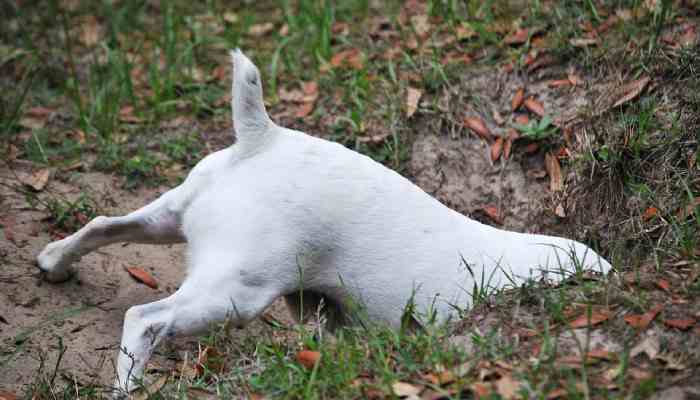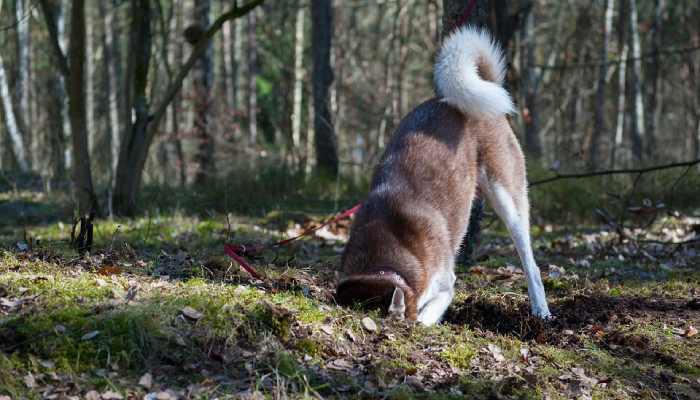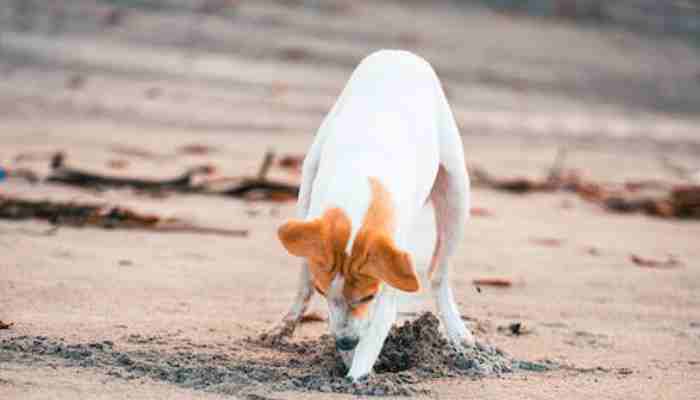Dogs have been domesticated for thousands of years and have been selectively bred for various purposes, including hunting, guarding, herding, and companionship. As a result, different dog breeds display distinctive physical and behavioural traits, including variations in digging behaviour. While some breeds may hardly dig at all, others may dig excessively, leading to issues such as property damage and potential health risks. In this article, we explore the role of breed-specific instincts in the digging behaviour of dogs and how this behaviour can be better understood and managed.
Firstly, it is important to understand that all dogs have a natural tendency to dig, as it is a behaviour that is innate and hardwired into their genetic makeup. However, the intensity and frequency of digging can vary significantly between breeds, with some breeds displaying a stronger predisposition to digging behaviour than others.
One of the primary reasons for this variation is due to the different roles that dogs were selectively bred for over the centuries. For example, terriers were originally bred to hunt small prey such as rodents, rabbits, and foxes, and digging was a vital part of their hunting strategy. As a result, many terrier breeds, such as the Jack Russell Terrier and the Border Terrier, have a strong instinct to dig and may even display obsessive digging behaviour.
Similarly, breeds such as the Dachshund and the Basset Hound were selectively bred for hunting burrowing animals, such as badgers and rabbits, and have a natural inclination towards digging. On the other hand, breeds such as the Greyhound and the Afghan Hound were selectively bred for racing and hunting and do not typically display excessive digging behaviour.
Aside from hunting instincts, some dog breeds may have a natural inclination to dig due to their working history. For instance, breeds like the Alaskan Malamute and the Siberian Husky were selectively bred to be sled dogs in cold, snowy regions, and digging can be a way for them to create a shelter from the cold.
Another factor that may contribute to breed-specific digging behaviour is personality and temperament. For example, some breeds like the Beagle and the Dalmatian are known to be highly energetic and playful, which may translate into a greater likelihood of digging behaviour as a form of exercise and stimulation.
While breed-specific instincts play an important role in the digging behaviour of dogs, it is important to note that the environment, training, and individual temperament can also have a significant impact. Dogs that are not provided with sufficient opportunities for exercise and stimulation or are left alone for extended periods of time may engage in excessive digging behaviour out of boredom or anxiety. Similarly, dogs that are trained to dig for certain activities, such as hunting or earthdog trials, may display excessive digging behaviour if the training is not appropriately managed.
FAQ
Why do dogs engage in digging behaviour? – Dogs engage in digging behaviour for a variety of reasons, including hunting instincts, seeking comfort, boredom, escape attempts, or simply because it’s fun.
Which dog breeds display a stronger predisposition to digging behaviour and why? – Terrier breeds, Dachshunds, and Beagles are some of the dog breeds that display a stronger predisposition to digging behaviour due to their selective breeding for hunting purposes and their instinct to dig and search for prey.
What are some of the primary reasons for variation in digging behaviour between different dog breeds? – Some of the primary reasons for variation in digging behaviour between different dog breeds include selective breeding for specific traits, hunting instincts, working history, personality and temperament, and environmental factors.
How does the hunting instinct of some dog breeds contribute to their digging behaviour? – The hunting instinct of some dog breeds contributes to their digging behaviour because it is a way for them to search for prey, track scents, and create burrows for shelter.
What is the impact of personality and temperament on digging behaviour in dogs? -The impact of personality and temperament on digging behaviour in dogs varies depending on the individual dog, but certain personality traits such as high energy, independence, and curiosity can increase the likelihood of engaging in digging behaviour
In conclusion, breed-specific instincts are a key factor in the digging behaviour of dogs, with some breeds displaying a greater predisposition to digging behaviour due to their evolutionary history and physical traits. However, it is important to consider individual temperament, training, and environmental factors when addressing excessive digging behaviour in dogs. By understanding the underlying reasons for digging behaviour, owners and trainers can better manage and redirect this natural and instinctive behaviour.



